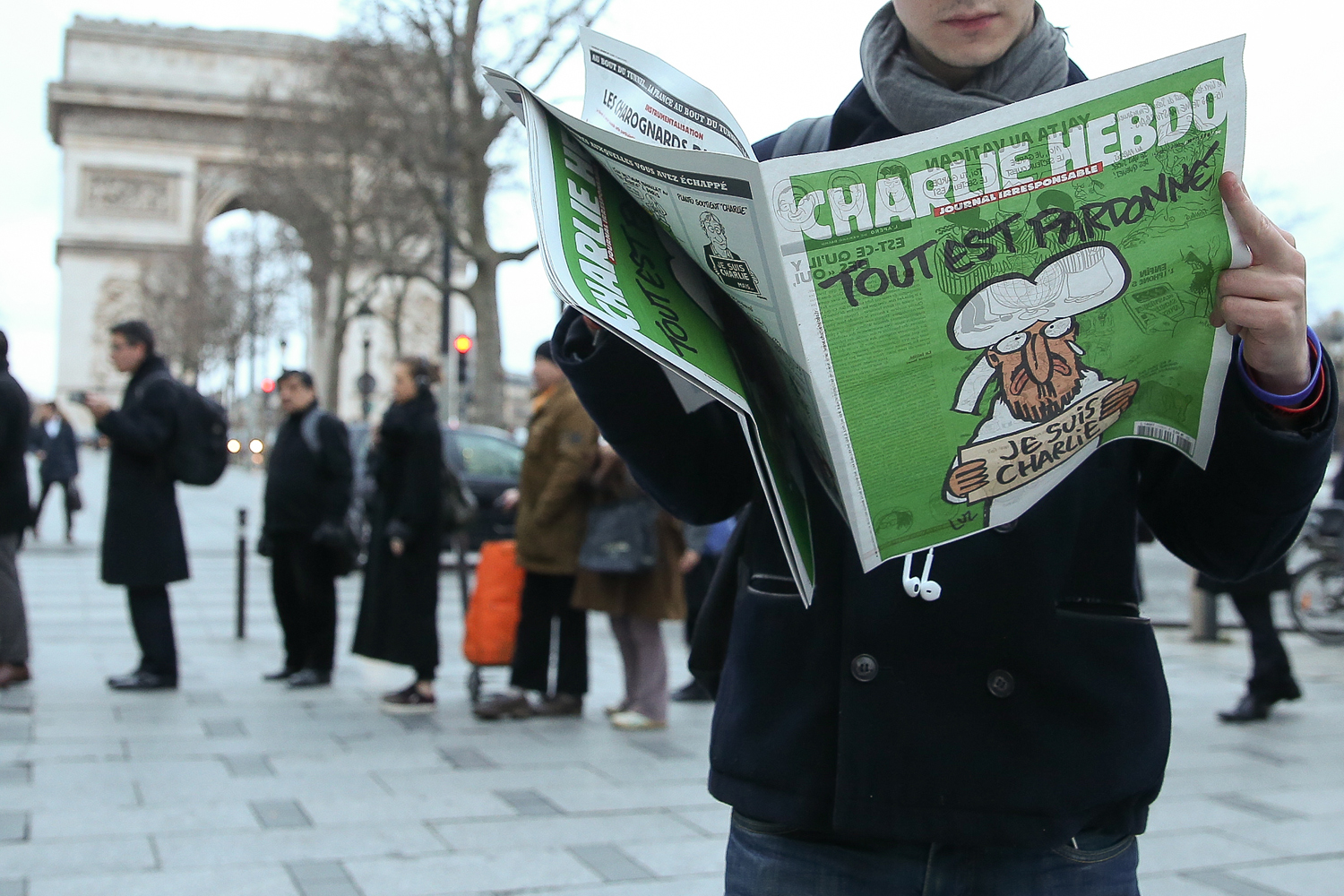
By Melissa Rohman and Sara Scheler
On January 7, havoc shook the grounds of Paris when two French Islamist gunmen, Saïd Kouachi and Chérif Kouachi, forced their way into and opened fire on the Paris headquarters of the satirical weekly magazine Charlie Hebdo.
The New York Daily News reported that the Kouachi brothers “bragged to witnesses at the murder scene that they belonged to Al Qaeda while chanting “Allahu akbar” (God is great) when committing their terrorizing attack.
The Kouachi brothers managed to kill 12 in the attack: five staff cartoonists, one economist, two editors, one guest, one maintenance worker and two police officers, and wounded 11 others.
Junior and French exchange student Quentin Becquey was in France on the day of the attack. He said French police and media were on high alert that day. “It took three hours to get to Normandy from my home on the train instead of the usual thirty minutes,” Becquey said.
This is the second attack against the magazine; the other occurred in 2011. Both attacks were assumed to be responses to controversial Muhammad cartoons that the magazine has published in its issues. Although the Quran, the holy Islamic text, does not explicitly forbid images of Muhammad, there are a few supplemental teachings that prohibit Muslims from creating visual depictions.
Dominican French professor Elizabeth Landers was traveling on the day of the attacks when she saw the attacks on TV in the airport. Landers, an active reader of French news, said reactions to the attack are continuing to filter through France and other European countries. She said the attacks have “heightened a lot of tensions” and provoked a variety of incidents in schools and neighborhoods, causing French and European police to tighten surveillance.
French president François Hollande described the attack as a “terrorist attack of the most extreme barbarity.” These actions of barbarity and tragedy brought the concept of free press to the forefront of many minds. After the attack, President Obama said, “The fact that this was an attack on journalists, an attack on our free press, also underscores that these terrorists fear freedom of speech and freedom of the press.”
Both Becquey and Landers support the principle of free press but have hesitations. Becquey said: “I do support free speech but I don’t support what the newspaper was doing, the kind of work they publish I don’t like it. Freedom from censorship is important, but just because you can say something doesn’t mean you should say it.”
Rallies took place in France on January 10 and 11 in response to the attack. According to ABC News, over 3 million people led by world leaders silently marched in response to the tragedy, many carrying flags and signs with the now internationally famous slogan and hashtag “Je Suis Charlie,” which means “I am Charlie” and is now used to support free press. Becquey said, “The marches were a moment of unity.” After the attacks, the French government granted nearly €1 million to support the magazine and to help release their next edition entitled the “The Survivors’ Issue.” According to officials, the publication resulted in protests by Muslim demonstrators in Yemen, Pakistan, Senegal, Niger and other countries. The cover features a cartoon of the prophet Mohammed crying as he holds a sign saying “Je suis Charlie.” Beneath the photo, the headline reads in French “All is forgiven.”
According to CNN, the government of Jordan, where 95 percent of the population follow Sunni Islam, said continuing to publish “offensive drawings” of Mohammed would “hurt the feelings of the Muslim communities everywhere” and “does not represent the freedom of expression, which is based on the foundation of the responsibility and the respect of religions.”
The day after the attack, the remaining staff of Charlie Hebdo announced that publication would continue and that the print run would be increased from three to five million copies, due to a huge increase in demand. Revenue is allegelly doing to help the victims’ families.
According to Landers, Charlie Hebdo was struggling financially at the time of the attack. It looks like the magazine will now receive state subsidies to keep publishing. Landers said this says more about the French government’s policies on free speech than the French public’s taste.
